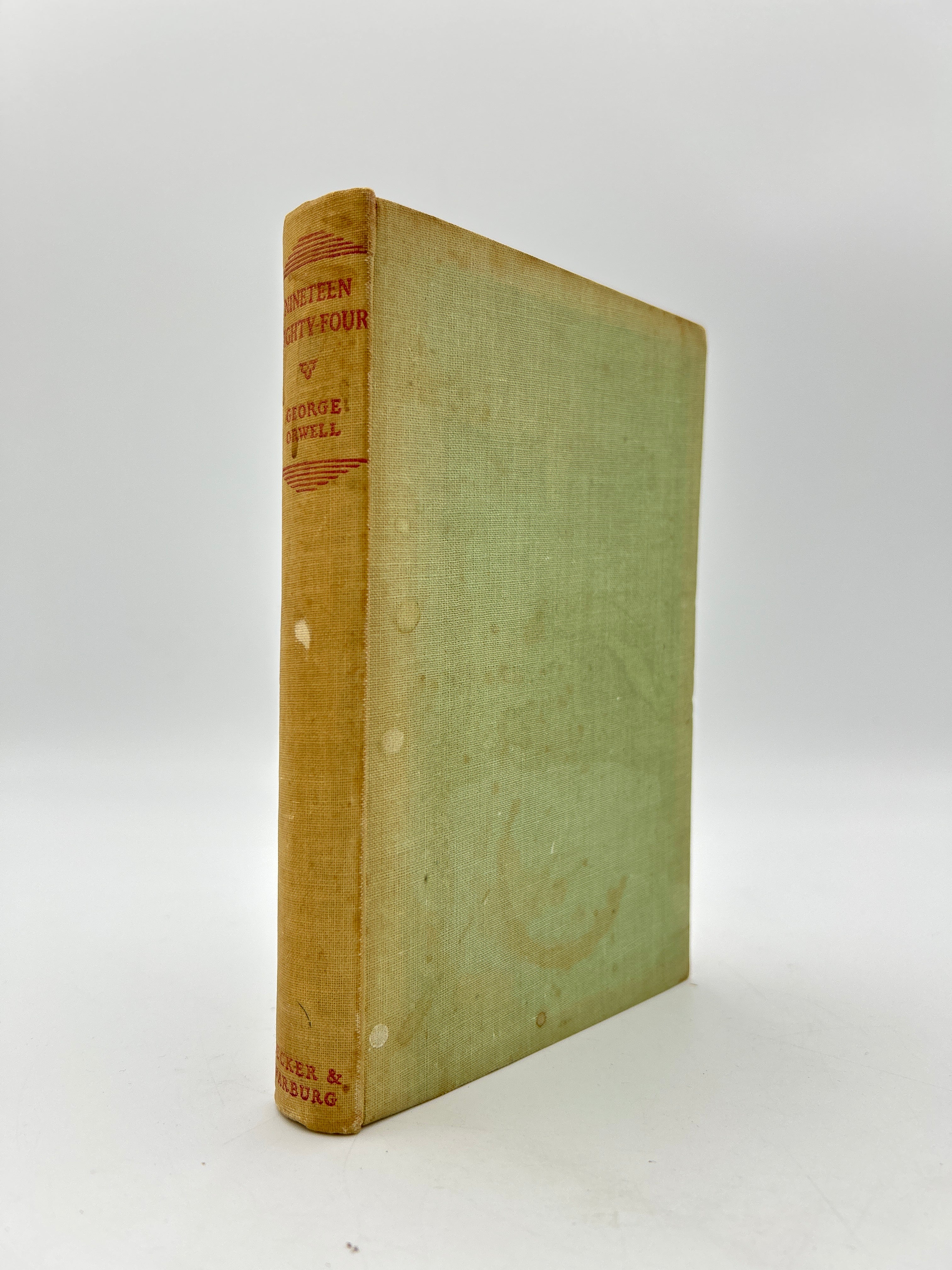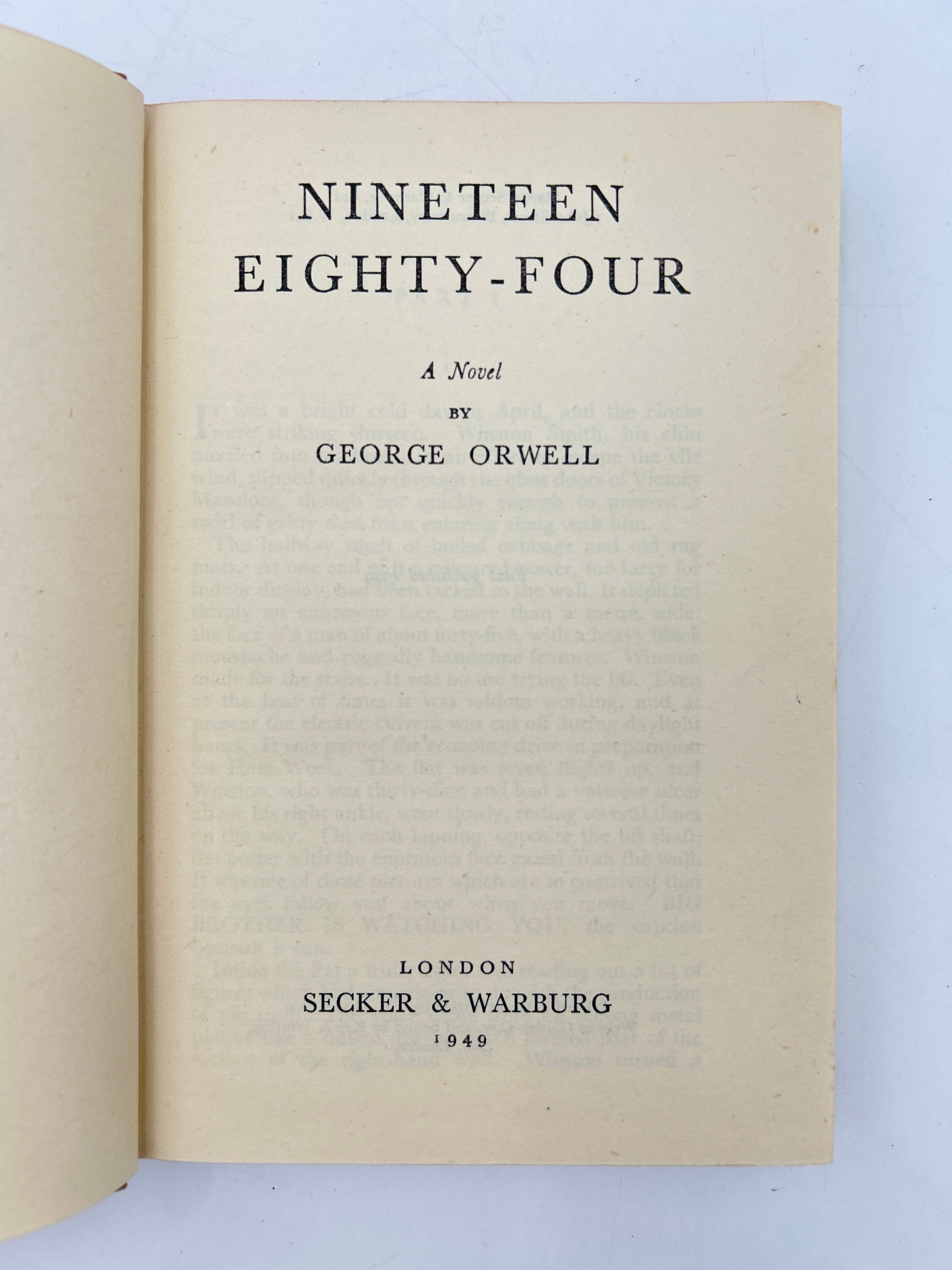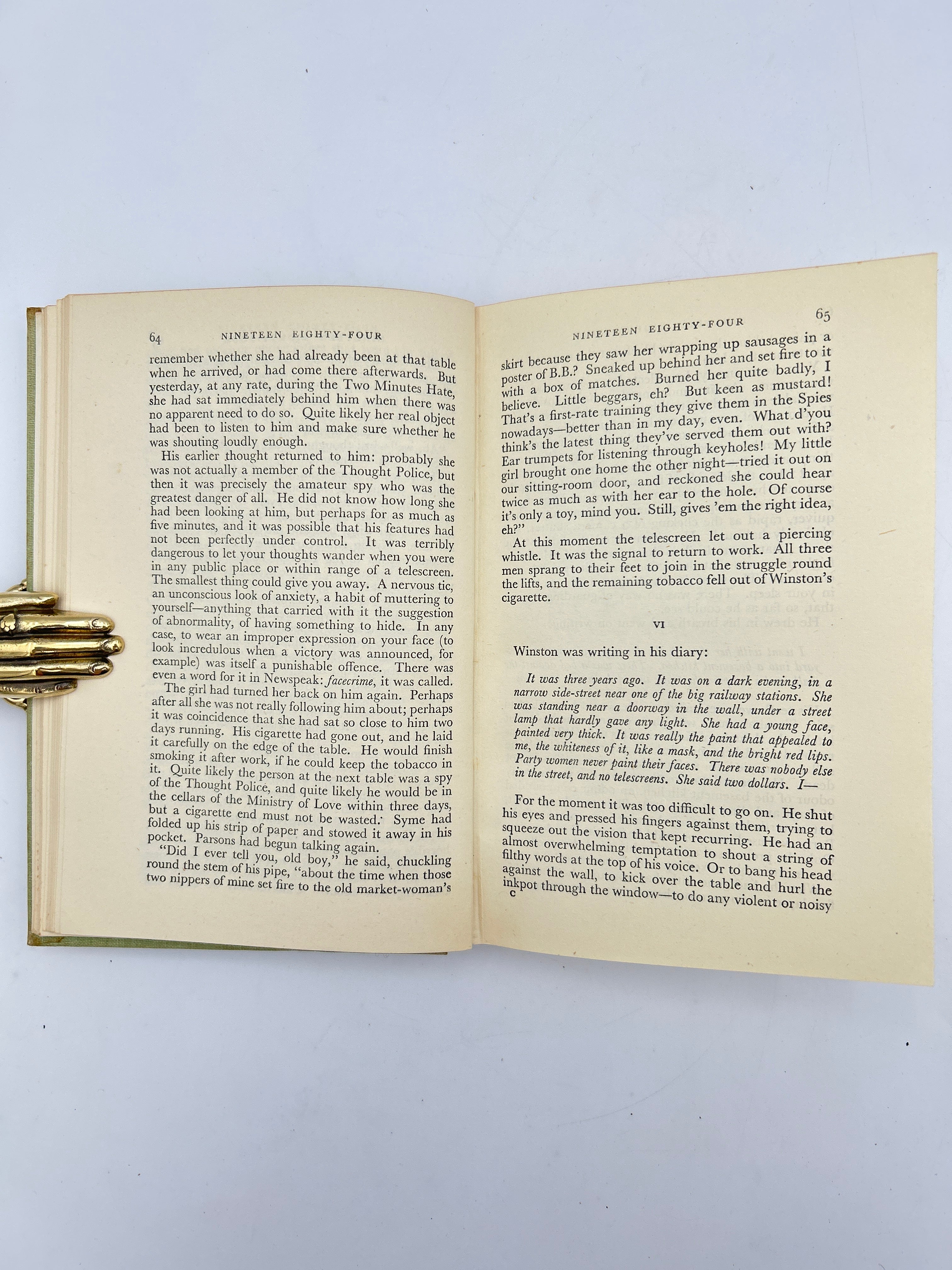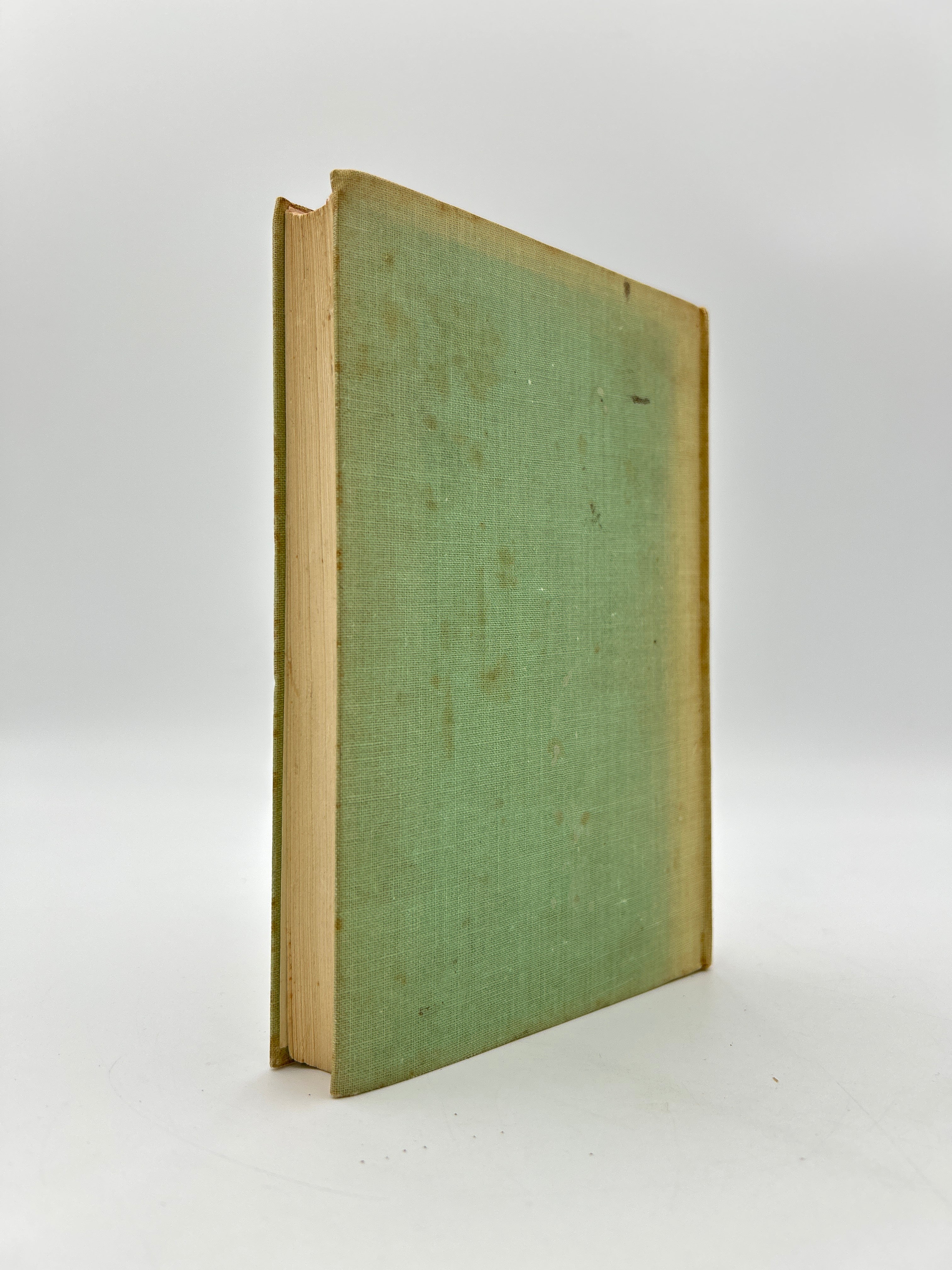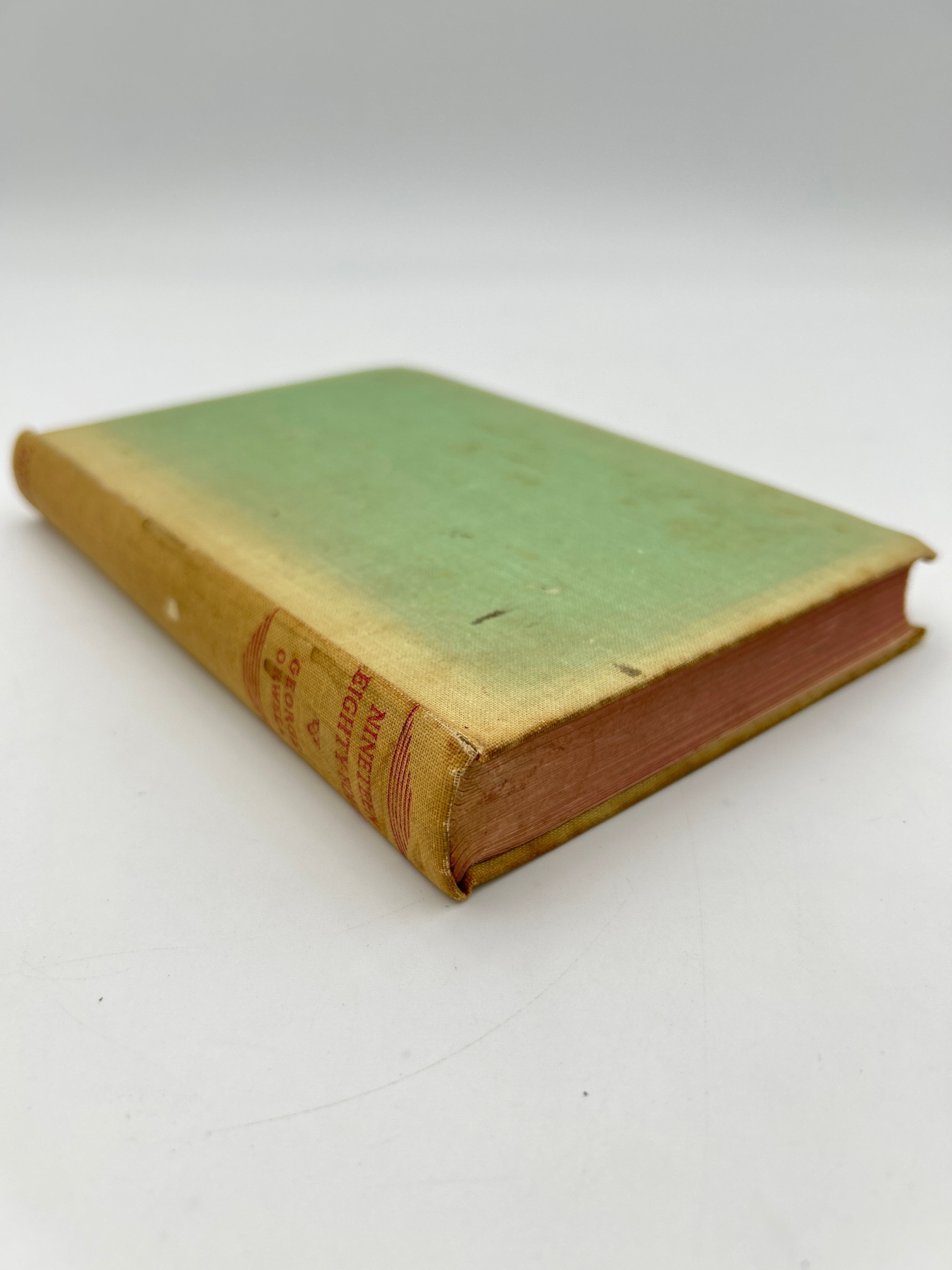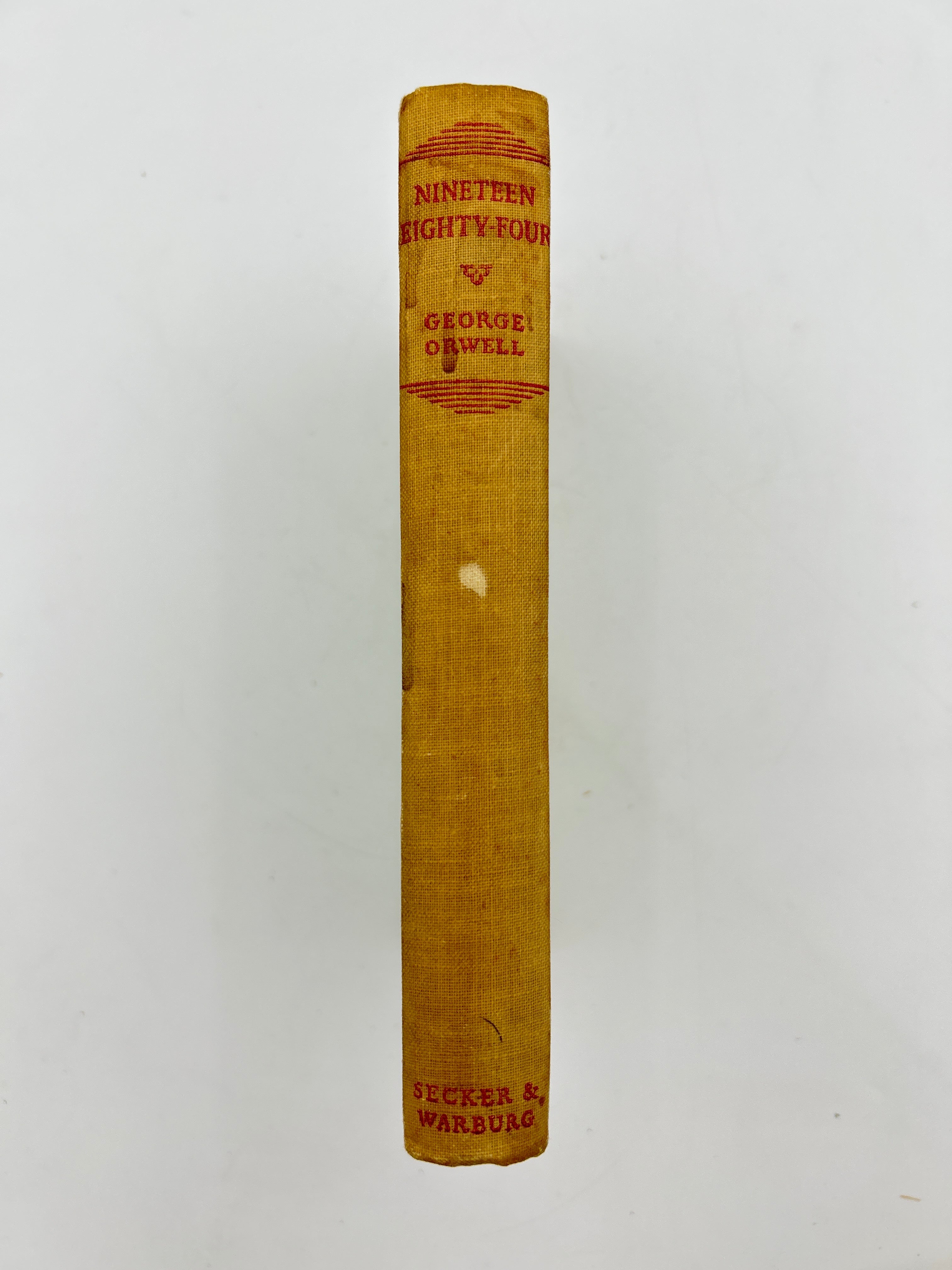Nineteen Eighty-Four
Couldn't load pickup availability
6b George Orwell. London: Secker & Warburg. 1949. First Edition.
Notes
Nineteen Eighty-Four by George Orwell is a dystopian novel set in a totalitarian society ruled by Big Brother and the Party, where surveillance, propaganda, and thought control dominate every aspect of life. The story follows Winston Smith, a low-ranking Party member who secretly rebels against the oppressive regime, seeking truth, individuality, and love. Orwell presents a chilling vision of a society stripped of privacy, freedom, and historical accuracy, where language and information are manipulated to maintain absolute power. The novel is renowned for its stark depiction of authoritarianism and its exploration of themes such as censorship, conformity, and the fragility of human autonomy.
Nineteen Eighty-Four has had a profound and lasting impact on literature, politics, and popular culture, giving rise to terms like “Big Brother,” “doublethink,” and “thoughtcrime.” Its warnings about totalitarianism, propaganda, and state surveillance remain relevant across decades, influencing debates on privacy, government overreach, and civil liberties. George Orwell (1903–1950), born Eric Arthur Blair, was a British writer and journalist known for his sharp critiques of social injustice, authoritarianism, and totalitarian regimes. His experiences in colonial Burma, the Spanish Civil War, and observing the rise of fascism and communism deeply informed his writing, resulting in works like Animal Farm and Nineteen Eighty-Four, which continue to resonate as cautionary tales about power, oppression, and the importance of individual thought.
Nineteen Eighty-Four has faced censorship and bans multiple times since its publication, often due to its political content, depiction of totalitarian regimes, and sexual material. In the United States, it was challenged in several school districts for “offensive language” and perceived anti-government themes, while in the Soviet Union and other communist states, it was banned outright for criticizing authoritarianism. Religious groups in some countries also objected to the book’s sexual references and themes of rebellion against established authority. Despite—or perhaps because of—these challenges, the novel has endured as a pivotal work of political literature, frequently cited in discussions about freedom of speech, governmental overreach, and the dangers of unchecked power.
Description
Green canvas binding with red lettering to spine. Some slight soiling to upper board in shape of potentially a coffee cup. Sun fading to spine. Otherwise fine condition.
